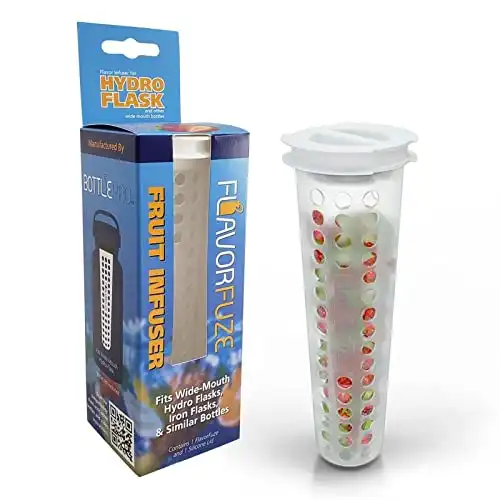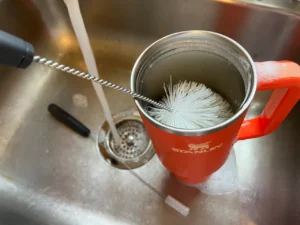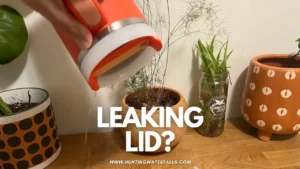I bought my first RTIC water bottle 6 years ago when I was trying to up my water intake. Today I carry it everywhere and fill it up at least twice daily.
Sometimes I add lemon slices or juice to my RTIC tumbler to add flavor and nutrients. However, is it safe, and could it corrode my bottle?
You can put lemon in your RTIC tumbler/bottle without damaging it. The stainless steel material of the bottle will not corrode or rust thanks to its protective coating, which helps prevent any damage to the bottle.
However, there are a few things to consider, like how long you leave the lemon in the bottle and your RTIC material quality. Also, some people do claim that adding lemon can cause your bottle or tumbler to get a bit of a metallic taste to it.
For me, I don't see any major health risks in putting lemon in your RTIC bottles or tumblers however some people may want to avoid it if they are concerned about metal leaching.
Will Lemons Cause RTIC Tumblers to Leach Chemicals Into My Drink?
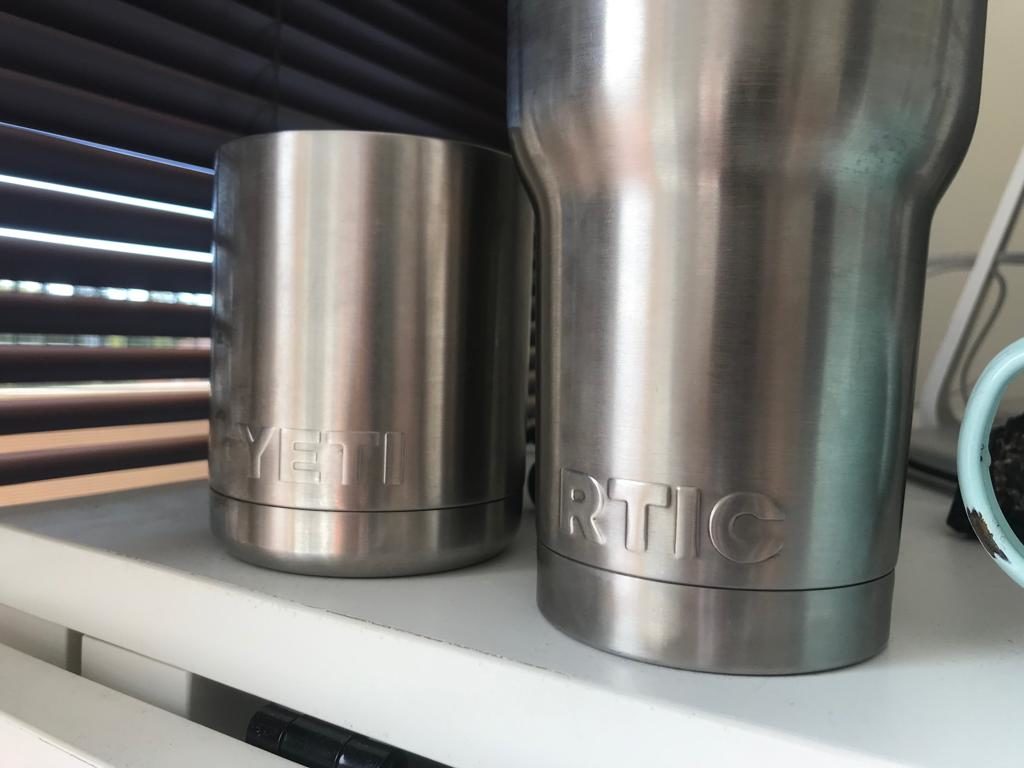
To my knowledge there hasn't been any studies into the effects of lemon juice and chemical leaching in popular stainless steel tumblers and bottles like Yeti, RTIC, Hydro Flask, S'Well etc.
However, stainless steel is one of the most commonly used metals when it comes to food and drink storage and is widely considered to be one of the safest metals to use.
Soda, which is similar in acidity to lemon, is made and stored in large stainless steel tanks before being poured into the plastic bottles you buy from the super market. These tanks are likely made from a similar grade stainless steel to RTIC products.
So no, leaving lemons in your RTIC tumbler/bottle should not cause any leaching of chemicals into your drink. The stainless steel material is safe and inert, meaning you can enjoy the health benefits of lemon without worrying about any chemical leaching.
Stainless steel contains chromium, which forms a protective layer of chromium oxide that helps prevent corrosion. The steel is also non-porous, so there won’t be any absorption.
However, apparently most stainless steel tumblers and bottles use a finishing process called electro polishing to seal the metal before the products are sold. According to Robert Seals, the founder of Klean Kanteen, this process doesn't seal the products against metal leaching from acidic drinks.
There is a comment on an online forum thread from him (unverified). He says:
A. I am Robert Seals the inventor of Klean Kanteen which started the stainless vs plastic revolution; I sold the company years ago. I had the bottles tested back then because as a metal worker I was concerned about electropolishing, which I did not trust. Using an acid equivalent to lemon juice it was found to leach nickel over the acceptable amount allowed by FDA standards. I was concerned enough to print FOR WATER ONLY on the bottles as the same tests showed no detectable metal when water was used.
I've personally received emails from Robert Seals (again unverified) stating that he has done independent testing and acidic drinks can cause the leaching of Nickel into the drinks.
However, this information came from a random gmail account and there was no attached and verified study – so for me I am skeptical though very interested to hear more as this develops.
From my research into whether or not stainless steel tumblers and bottles might cause cancer it seems to me that small amounts of leaching of Nickel, Chromium or Iron from your tumbler or bottle wouldn't pose any immediate health threats.
However, I only use lemon juice in my water rarely and when I do I try to drink it fairly quickly (within 1-2 hours) and not leave it in the tumbler all day.
I will also wash my tumbler well after having lemon in it to avoid residue buildup and to keep it clean to drink out of. RTIC tumblers can't go in the dishwasher so you will need to hand wash them.
How Long Should You Leave Lemon in Your RTIC Tumbler/Bottle?
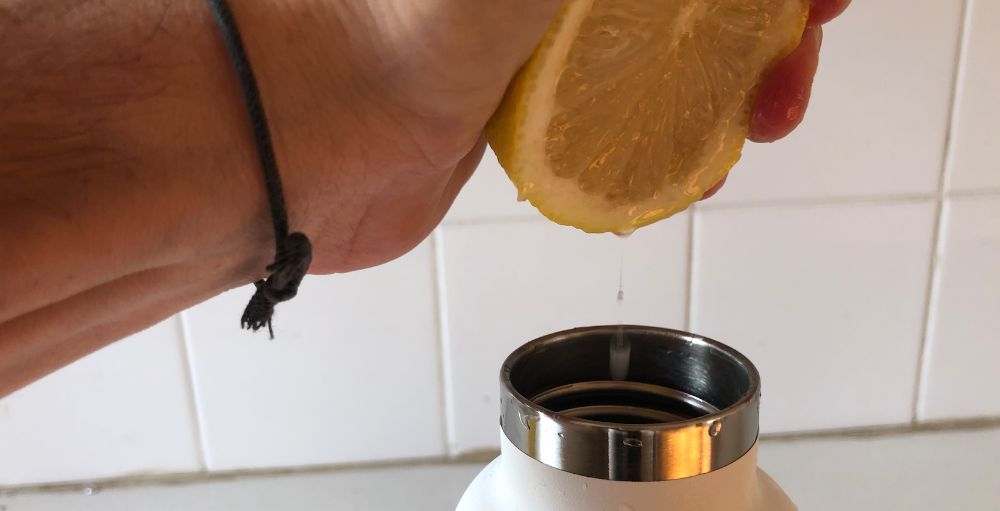
You should not leave the lemon in the bottle for over two hours. The longer acidic substances like lemon remain in contact with the metal, the higher chance of corrosion.
Also, avoid using boiling water with citrus fruits such as lemons and limes. Boiling water can react with the acidity of these fruits and cause corrosion over time, even on stainless steel bottles.
Remember to rinse your RTIC tumbler/bottle thoroughly after use with fresh, plain water, and ensure it is completely dry before storing it.
A good cleaning routine helps to keep your RTIC tumbler/bottle looking and performing like new for years. It can also help avoid contamination and corrosion.
Can You Put Other Fruit Juices in Your RTIC Tumbler or Bottle?
You can also put other juice in your RTIC tumbler or bottle. Orange, apple, and cranberry juices are safe for these bottles if you follow the guidelines mentioned above.
Fruits with a low pH level are more acidic, so remember to rinse your tumbler/bottle or use it within two hours of adding it. Fruits with a low pH include cranberries, apples, or Cherries.
Alkaline fruits like bananas, kiwis, and mangos are safe in your RTIC tumbler/bottle. They have a higher pH level, so they take longer to corrode the metal surface.
This fruit infuser tube is 6 inches tall and is a great size for fitting in plenty of fruit to infuse into your water bottle for extra flavoring. Made with food grade silicone and BPA-free plastic this is compatible with most wide mouth water bottles and also fits in tumblers.


